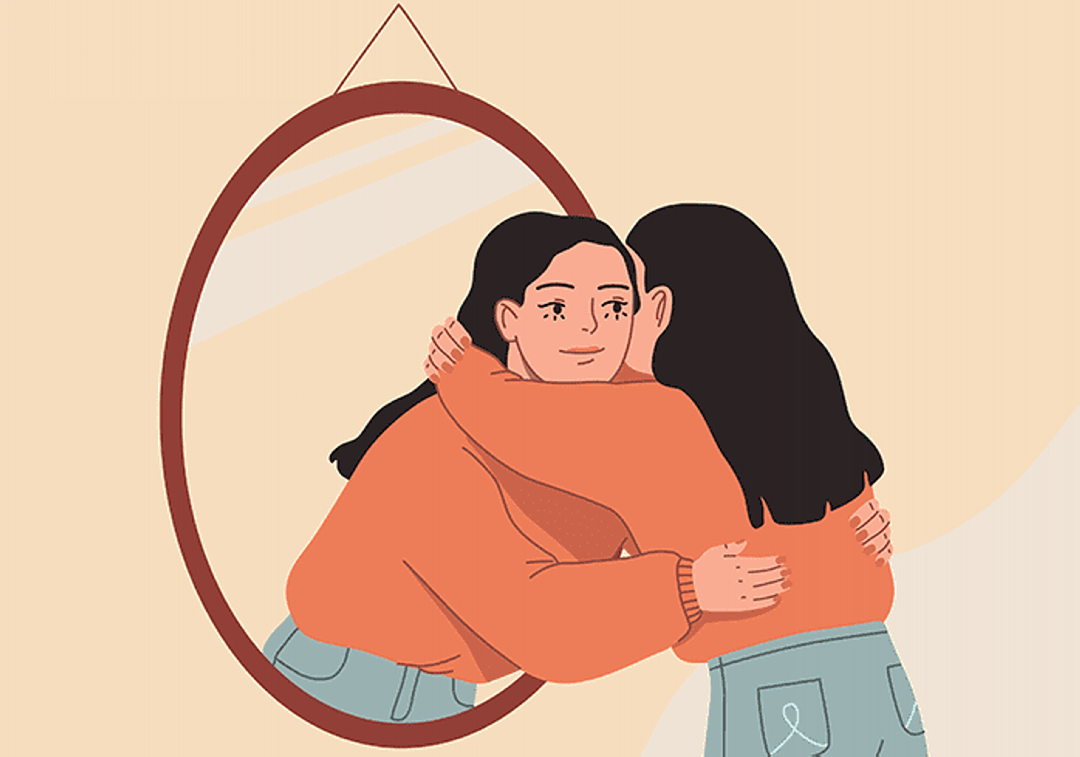In 2011, once I was recognized with main depressive order and generalized anxiousness dysfunction throughout my first semester of faculty, I wasn’t precisely stunned. Largely, I used to be relieved to have an evidence. The diagnoses felt like a validation of the sleepless nights, unexplainable chest pains, spiraling ideas, crushing despair and fixed exhaustion. There was a reputation for — and a cause why — somebody with an objectively good life couldn’t handle to get off the bed and face actuality on daily basis.
However as I scanned the insurance coverage paperwork (which was marked with particular numbers akin to diagnoses) and reviewed the slip of paper prescribing medicine, I felt a lump in my throat. I wasn’t certain how one can share this info with these closest to me. Would they see me in a different way? Would they are saying I used to be unstable? Or “loopy”?
Family and friends had expressed issues about my conduct up to now — the hyperventilating, the fixed concern of the longer term, the times spent in mattress — however having an precise title for this conduct felt so official. So scientific. How would I persuade my mates, household, potential companions, lecturers or future bosses that I used to be reliable? Or succesful? Or regular?
To Deal with My Discomfort, I Resorted to Low cost Humor
To handle my anxiousness and despair, I started attending remedy periods usually and taking every day medicine. These adjustments to my routine had been lifesaving; my issues didn’t go away, however they out of the blue felt manageable. I even developed particular coping mechanisms to handle my panic assaults and depressive spirals. Nonetheless, regardless of the plain enchancment in my day-to-day life, I used to be embarrassed concerning the new label I’d been saddled with. My face flushed when my roommates caught me taking drugs within the morning, and I discovered myself scanning the road exterior my therapist’s workplace, fearful of seeing a well-known face.
To ease my very own discomfort (and what I assumed to be the discomfort of others) I mocked myself mercilessly. By addressing the elephant within the room, I reasoned, I used to be defending myself. Possibly a harsh phrase or an unsolicited opinion about my psychological well being would damage much less if I stated it first. So, I made certain to name my every day medicine “my loopy drugs.” I persistently referred to myself as “emotionally unstable,” “chemically imbalanced” and, within the opening line of a relationship app profile, “a sizzling mess of DSM phrases.”
My Perspective Solely Made Issues Worse
Throwing round careless language, I rapidly realized, didn’t make me really feel higher. My anxiousness escalated as I attempted to learn individuals’s facial expressions and over-analyzed their reactions once I talked about my psychological well being. The extra I attempted to get rid of the awkwardness, the extra adverse consideration I drew to myself. And I actually wasn’t placing anybody else relaxed. Associates and strangers alike normally stared on the flooring, uncertain of how one can reply, once I made a joke about my psychological sickness.
Furthermore, my poisonous strategy to addressing my very own scenario emboldened those that weren’t as well-intentioned to make use of equally offensive phrases. I used to be stunned when a classmate referred to his associate as “certifiably insane” and winced when one other joked about how her mom wanted to be “dedicated to a psych ward” for her fixed textual content messaging. However how might I anticipate them to talk rigorously or respectfully once I persistently referred to myself as “a lunatic”?
I Determined to Change My Habits and Normalize My Expertise
After a number of months of creating jokes at my very own expense (and, in fact, unpacking this conduct in remedy), I noticed that the stigma and judgment I feared was not coming from these round me — it was coming from me. My offensive quips to chop the strain solely perpetuated adverse stereotypes about psychological sickness. Additionally they made in any other case regular conversations awkward and tense. So, I made a concerted effort to vary my strategy.
I started speaking overtly about remedy with my mates, even sharing helpful insights my therapist had given me when it was acceptable. Finally, I had provided a lot recommendation that I turned a useful resource to mates who wanted methods for managing stress. “Thank God on your therapist,” one pal joked. “She makes all of our lives higher.”
I additionally started referencing remedy in an informal means, very like how my mates talked about their varied medical appointments. When evaluating schedules to arrange a bunch outing, we deliberate round Katy’s wrist MRI and my remedy appointment. Over time, my psychological sickness turned a medical concern as mundane as some other.
Years later, because the nationwide dialog about psychological well being has continued to evolve, lots of these mates have begun remedy themselves. And speaking about our psychological well being now feels as comfy as speaking about what TV reveals we’re watching. It’s one small a part of who we’re — and it carries no connotations of “craziness” or incompetence, like I as soon as feared.
Now, I Discover Methods to Communicate Up
Whereas I’m terribly fortunate to have a neighborhood that understands the fact of psychological sickness, that doesn’t imply that everybody I encounter has risen above the pervasive stigma. Typically, making progress requires having powerful conversations.
Maybe the toughest a part of combatting stigma is having tough conversations with the individuals you see usually. Nevertheless, I’ve discovered that being mild and trustworthy is an efficient technique to begin. I’m open about my psychological well being circumstances and I’m glad to reply questions that individuals have. If I hear somebody utilizing the careless language I as soon as used, I take the chance to share my lived expertise.
Change doesn’t occur in a single day. However trying inward has been an amazing place to start out.
Margot Harris is the Affiliate Editor of Advertising and Communications at NAMI. She has an MFA in nonfiction writing from Columbia College and beforehand labored as a digital tradition reporter at Enterprise Insider. She lives in Washington, D.C., together with her very energetic emotional help canine, Lyla.



